Current News
/ArcaMax
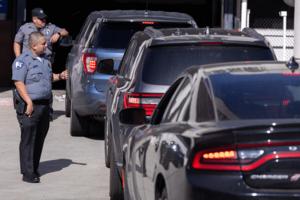
Multiple immigration sweeps reported across Los Angeles: 'They're everywhere'
LOS ANGELES — U.S. Immigration and Customs Enforcement agents were carrying out a series of immigration sweeps across Southern California on Friday morning, sparking fear and anxiety among immigrant communities.
At least one video posted on X show federal agents running after people in the parking lot of the Home Depot in Westlake, not far ...Read more
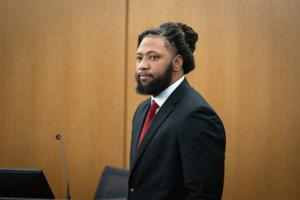
Minnesota man found guilty of murder in car crash that killed 5 young Somali women
MINNEAPOLIS — Two years after five young women were killed instantly in a vicious car crash, a Hennepin County jury found Derrick John Thompson guilty Friday of five counts of third-degree murder and 10 counts of criminal vehicular homicide for their deaths.
The families of Sabiriin Ali, Sahra Gesaade, Salma Abdikadir, Sagal Hersi and Siham ...Read more
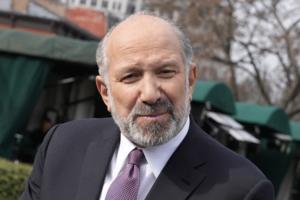
Tariffs challengers cite Trump administration officials' own words
WASHINGTON — A group of states and companies used the Trump administration’s own statements against them while urging a federal appeals court to pause the sweeping new tariffs on dozens of countries.
The Thursday filings at the U.S. Court of Appeals for the Federal Circuit come as the Trump administration seeks to keep the tariffs in place ...Read more

Abrego Garcia indicted; back in US to face federal charges
Kilmar Abrego Garcia is back in the U.S. to face a federal indictment in Tennessee accusing him of transporting across the country hundreds of people who had entered the U.S. illegally.
The sprawling two-count indictment alleges the Beltsville resident conspired with others for nearly a decade to transport people, as well as firearms, in over ...Read more
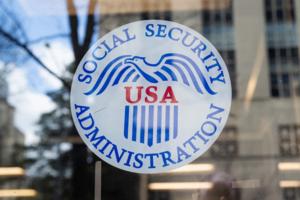
DOGE employees can search Social Security records, Supreme Court says
WASHINGTON — The Supreme Court cleared the way Friday for the DOGE team that had been led by Elon Musk to examine Social Security records that include personal information on most Americans.
Acting by a 6-3 vote, the justices granted an appeal from President Donald Trump’s lawyers and lifted a court order that had barred a team of DOGE ...Read more

Epstein attorney slams Musk's claim that Trump is 'in the Epstein files'
A defense attorney who worked with disgraced financier Jeffrey Epstein claims his former client provided no information that would implicate President Donald Trump in any illegal activity.
Epstein, who hanged himself at Manhattan’s Metropolitan Correctional Center in 2019 while awaiting trial on federal sex trafficking charges, was known to ...Read more
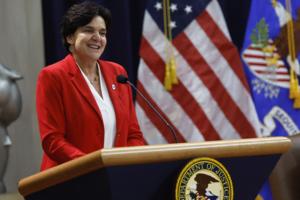
White House seeks to diminish Office on Violence Against Women
WASHINGTON — The Trump administration has asked Congress to delete a portion of a federal law that requires the Office on Violence Against Women to be a separate office within the Justice Department, part of a shake-up experts say would hamstring the office’s visibility and saddle victim grant programs with more bureaucracy.
The White House...Read more

Abrego Garcia indicted; back in US to face federal charges
Kilmar Abrego Garcia is back in the U.S. to face a federal indictment in Tennessee accusing him of transporting across the country hundreds of people who had entered the U.S. illegally.
The sprawling two-count indictment alleges the Beltsville resident conspired with others for nearly a decade to transport people, as well as firearms, in over ...Read more

Analysis: Trump's domestic drama could overshadow G7 amid feud with Elon Musk
WASHINGTON — President Donald Trump’s domestic drama threatens to overshadow a coming G7 summit, and a recent meeting with the German chancellor — with quips about World War II — suggests awkward moments could overtake the confab in Canada, which Trump has proposed making the “51st state.”
The question of how much German ...Read more

2 foreign nationals charged with stalking a Los Angeles artist who criticized Xi Jinping
LOS ANGELES — Two foreign nationals were charged with stalking a Los Angeles-based artist who has criticized Chinese President Xi Jinping, federal officials said.
Cui Guanghai, 43, of China, and John Miller, 63, of the U.K. and a U.S. lawful permanent resident, were charged with interstate stalking, conspiracy to commit interstate stalking, ...Read more

US, Chinese teams to meet Monday in London for trade talks
WASHINGTON — U.S. and Chinese negotiators will resume trade talks Monday in London, President Donald Trump announced, as the world’s two largest economies look to resolve a simmering dispute over tariffs and technology that has unnerved markets.
U.S. Treasury Secretary Scott Bessent, Commerce Secretary Howard Lutnick and U.S. Trade ...Read more
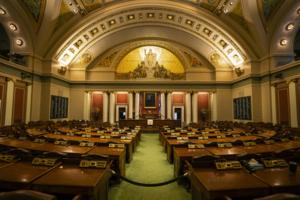
Minnesota lawmakers strike a deal on state budget, Gov. Tim Walz calls Monday special session
MINNEAPOLIS — Gov. Tim Walz and Minnesota’s narrowly divided Legislature have struck a deal on the state budget and will return to St. Paul on Monday to finish their work.
Walz and legislative leaders announced Friday they’ve agreed to a one-day special session that must adjourn before 7 a.m. Tuesday. Their two-page signed agreement, ...Read more

'Fraudulent EMT' gave medical care to 100-plus people in Colorado, officials say
A “fraudulent EMT” is accused of providing medical care to more than 100 people even though he wasn’t certified, Colorado officials said.
Lauren Wilson, 53, was indicted in connection with unauthorized practice of medicine while fraudulently representing to be a certified professional, along with other charges, the Colorado Attorney ...Read more
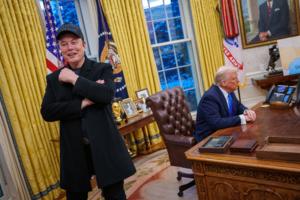
Trump says Musk 'has lost his mind' as feud with Tesla tycoon continues
President Donald Trump continued his war of words with Elon Musk on Friday, saying the Tesla tycoon “has lost his mind” — even as Musk seemed to be softening his stance in their epic feud.
Trump on Friday told reporters that while Musk may be ready to make amends, he’s not ready to rekindle his friendship with the tech billionaire, ...Read more

Trump's spending bill is floundering in the Senate as Musk attacks intensify
WASHINGTON — The clamorous end to President Trump’s alliance with Elon Musk is increasing pressure on the White House over its signature legislation known as the “One Big Beautiful Bill Act” — a bill under intense scrutiny in the Senate that Musk wants killed over its price tag, but that Trump views as critical to the success of his ...Read more

Jose Ibarra's attorneys seek mental evaluation, DNA expert in Laken Riley murder case
ATHENS, Ga. — Lawyers for Jose Ibarra, the man convicted of murder in the killing of college nursing student Laken Riley, told a judge Friday they intend to file motions seeking a mental competency evaluation and funding for a DNA expert to review forensic evidence.
The brief virtual hearing with an Athens-Clarke County judge was a status ...Read more

Sean 'Diddy' Combs ex-girlfriend in tears during testimony over coerced sex with strangers
NEW YORK — A young single mom who was involved with Sean “Diddy” Combs until his arrest last year laid out gut-wrenching accounts of being sexually exploited by the multimillionaire rap mogul at Manhattan Federal Court on Friday.
In explicit detail, “Jane,” a pseudonym, described multiple nights she spent sleeping with strangers in ...Read more
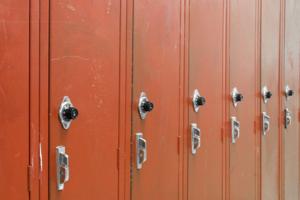
North Carolina high school student gets $20,000 and apology for suspension after 'illegal aliens' comment in class
RALEIGH, N.C. — A North Carolina school district has agreed to pay $20,000 and publicly apologize to a high school student who was suspended and accused of making “racially insensitive” comments for saying “illegal aliens” in class.
Christian McGhee was suspended for three days in April 2024 after asking his English teacher at Central...Read more
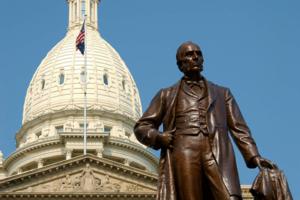
'No one will know': Records reveal secret money flowing through Lansing, Michigan
LANSING, Mich. — Money from some of Michigan's largest companies and wealthiest business executives secretly flowed to a fundraising account for state Senate Republicans during the early days of the pandemic, according to a trove of court records.
Dick DeVos, husband of then-U.S. Senate Education Secretary Betsy DeVos, gave $50,000 to the ...Read more
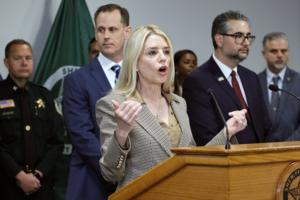
Florida Bar rejects complaint from group accusing Bondi of 'misconduct' as attorney general
MIAMI — During her Senate confirmation hearing for U.S. Attorney General, Pam Bondi tip-toed around whether she would stand up to President Donald Trump’s pressure on the Justice Department, promising only in a broad sense that “politics has to be taken out of this system.”
Since her confirmation in February, Bondi has earned the praise...Read more
Popular Stories
- Everyone from Jon Stewart to Alex Jones is weighing in on the Trump/Musk feud
- 'Unfortunately, Altadena is for sale': Developers are buying up burned lots
- Michelle Obama shares her honest thoughts on Malia dropping last name
- Duke University to offer more buyouts, anticipates layoffs under funding threats
- Musk walks back threat to decommission SpaceX Dragon spacecraft





